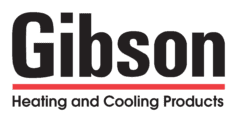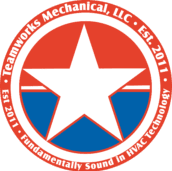Maximizing Energy Savings with Boiler Efficiency
In today's fast-paced world, with growing concerns about environmental sustainability and rising energy costs, optimizing boiler efficiency has become a crucial aspect of any business or industry. Boilers are widely used for generating heat and steam, but they can also be significant consumers of energy without routine boiler service and proper care.
Understanding Boiler Efficiency
In this blog post, Teamworks Mechanical explains the importance of boiler efficiency and explore various strategies to maximize energy savings, benefiting both the environment and your bottom line.
Boiler efficiency refers to the ability of a boiler to convert the energy content of its fuel into useful heat while minimizing wasted energy. It is typically expressed as a percentage, representing the proportion of input energy that the boiler effectively converts into usable heat.
A highly efficient boiler will waste less energy and result in lower operating costs, reduced emissions, and a smaller carbon footprint.
Factors Influencing Boiler Efficiency
- Combustion Efficiency: Efficient combustion of fuel is vital for achieving high boiler efficiency. Proper air-fuel ratio, adequate mixing, and appropriate burner maintenance all play pivotal roles in optimizing combustion efficiency.
- Boiler Design: Modern boilers are designed with advanced parts and components to enhance their efficiency. Features like multi-pass heat exchangers, economizers, and condensing technology allow for better heat recovery from flue gases, increasing overall efficiency.
- Regular Maintenance: Regular maintenance is essential to ensure the boiler operates at its peak efficiency. Regularly cleaning and inspecting boiler components, such as heat exchangers, burners, and tubes, can significantly impact energy savings.
- Boiler Load: Running the boiler at its optimal capacity is crucial for efficiency. Oversized or undersized boilers can lead to energy wastage. Implementing load management strategies and investing in multiple smaller boilers can optimize efficiency.
- Water Treatment: Proper water treatment is essential to prevent scale buildup and corrosion, both of which can reduce boiler efficiency over time.
Maximizing Energy Savings with Boiler Efficiency
- Upgrade to High-Efficiency Boilers: If your boiler system is outdated, consider investing in newer, high-efficiency models. While the upfront cost may be higher, the long-term energy savings and reduced environmental impact will make it a wise investment.
- Conduct Regular Audits: Regular energy audits can help identify areas where energy efficiency improvements can be made. Auditors can assess boiler operation, insulation, distribution, and controls, recommending measures for enhanced efficiency.
- Optimize Boiler Controls: Implement advanced boiler controls that respond to real-time demand. Automated systems can adjust fuel and air inputs based on varying loads, optimizing efficiency while meeting heating or steam requirements.
- Heat Recovery Systems: Consider incorporating heat recovery systems into your boiler setup. These systems capture waste heat from the flue gases and repurpose it for other heating applications, further reducing energy consumption.
- Educate Staff: Proper operation and maintenance are crucial for optimal boiler efficiency. Educate staff on best practices, including boiler startup and shutdown procedures, as well as regular maintenance tasks.
Boiler efficiency is not only a key factor in reducing energy consumption and operating costs but also plays a significant role in reducing the carbon footprint of businesses and industries.
By investing in high-efficiency boilers, conducting regular audits, and implementing energy-saving strategies, organizations can make substantial progress towards sustainability while enjoying long-term financial benefits.
Embracing boiler efficiency is not just a responsibility; it's a pathway to a greener and more energy-conscious future. Let's take the initiative today and pave the way for a brighter and more sustainable tomorrow.




















